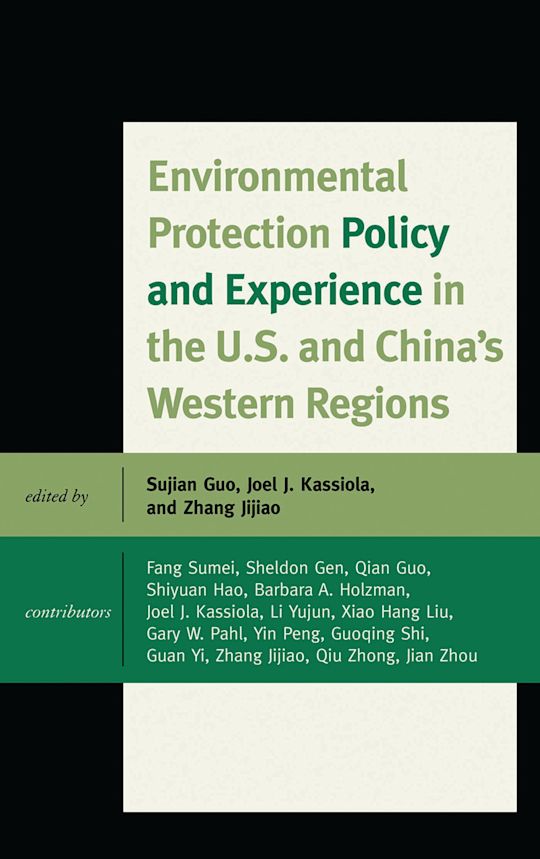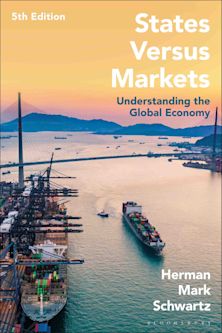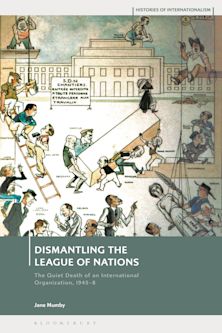- Home
- ACADEMIC
- Politics & International Relations
- International Relations - Other
- Environmental Protection Policy and Experience in the U.S. and China's Western Regions
Environmental Protection Policy and Experience in the U.S. and China's Western Regions
Sujian Guo (Anthology Editor) , Joel J. Kassiola (Anthology Editor) , Jijiao Zhang (Anthology Editor) , Sheldon Gen (Contributor) , Qian Guo (Contributor) , Shiyuan Hao (Contributor) , Barbara A. Holzman (Contributor) , Joel J. Kassiola (Contributor) , Xiao Hang Liu (Contributor) , Gary W. Pahl (Contributor) , Yin Peng (Contributor) , Guoqing Shi (Contributor) , Fang Sumei (Contributor) , Guan Yi (Contributor) , Li Yujun (Contributor) , Qiu Zhong (Contributor) , Jian Zhou (Contributor)
Environmental Protection Policy and Experience in the U.S. and China's Western Regions
Sujian Guo (Anthology Editor) , Joel J. Kassiola (Anthology Editor) , Jijiao Zhang (Anthology Editor) , Sheldon Gen (Contributor) , Qian Guo (Contributor) , Shiyuan Hao (Contributor) , Barbara A. Holzman (Contributor) , Joel J. Kassiola (Contributor) , Xiao Hang Liu (Contributor) , Gary W. Pahl (Contributor) , Yin Peng (Contributor) , Guoqing Shi (Contributor) , Fang Sumei (Contributor) , Guan Yi (Contributor) , Li Yujun (Contributor) , Qiu Zhong (Contributor) , Jian Zhou (Contributor)
For information on how we process your data, read our Privacy Policy
Thank you. We will email you when this book is available to order
You must sign in to add this item to your wishlist. Please sign in or create an account
Description
China is a multiethnic country with vast territory, a land of diverse ecosystems. With the drive for industrialization in China and the implementation of 'western grand development' strategy in western regions, both governments and people face great challenges in environmental protection and sustainable use of biodiversity resources as a result of growing interaction between human activities and natural environment. To meet the challenges, governments in these regions need to adopt a series of important policy measures, not only to reduce industrial emissions, but also to return farmland to forests and pasture to grasslands and to implement measures of ecological migration to reduce human activities in ecological conservation areas. In this regard, China must not only learn profound lessons from industrialized countries but also search for international cooperation. The United States provides some good comparative case studies on the environmental protection, grassroots environmental management, and conservation policies in western regions This book attempts to address key questions about Chinese and U.S. environmental policies by looking at historical development of environmental protection and current environmental policy in the western regions of the two countries.
Table of Contents
Part 2 Part 1: Lessons from the U.S. Experience for China
Chapter 3 Chapter 1: American Agricultural Conservation as a National Policy: Lessons from the U. S. for China's Great West Development
Chapter 4 Chapter 2: Grassroots Environmental Management in the Western United States: Can it be a Model for Success for Western China
Chapter 5 Chapter 3: Values Conflict in American Environmental Federalism, with Implications for China
Chapter 6 Chapter 4: Urban Growth Control and Farmland Preservation in West China
Chapter 7 Chapter 5: Archaeological Site Management as Environmental Policy in U.S. and China: Implications for Western Expansion in China
Part 8 Part 2: Chinese Environmental Policy and Experience
Chapter 9 Chapter 6: Environmental Consciousness Change: A Comparative Study of USA and PRC (1950-2008)
Chapter 10 Chapter 7: Urban Environmental Protection Policies and their Effects in China
Chapter 11 Chapter 8: Ecological and Environmental Migration in China: Policy and Practice
Chapter 12 Chapter 9: "Cities Besieged by Garbage" and Counter-measures for Environmental Protection in Western Cities: A Case Study of Solid Waste Classification in Kunming
Chapter 13 Chapter 10: Ecological Migration Practices and the Placement of Migrants and its Impact on Poverty Alleviation and Development: A Case Study of the Huanjiang Maonan Autonomous County Guangxi
Product details
| Published | Jun 14 2010 |
|---|---|
| Format | Ebook (Epub & Mobi) |
| Edition | 1st |
| Extent | 214 |
| ISBN | 9781461633389 |
| Imprint | Lexington Books |
| Series | Challenges Facing Chinese Political Development |
| Publisher | Bloomsbury Publishing |
About the contributors
Reviews
-
There is a substantial amount of unique material in this book, and particularly outstanding are the detailed case studies of environmental or environment related social issues in China’s western regions, especially the issue of ecological migration which is approached from different perspectives in two chapters. The book is also valuable for its pioneering work in comparing these two development processes through the lens of environmental issues, which has been neglected by most previous studies, and draws readers’ attention to the environmental aspect of China’s westward development. . . .Overall, this book offers a fresh methodology for researching the environmental issues that have arisen in the process of China’s development from a comparative perspective, and attempts to draw lessons from the US in its westward development more than a century earlier. This book should be read by any serious student interested in China’s environmental politics and policy, comparative environment politics, and China studies broadly construed.
Journal of Chinese Political Science
-
The U.N. Climate Conference in Copenhagen made clear that the fate of the planet rests in large part on the environmental policies of two superpowers, China and the United States. This volume could not be more timely with its analysis and comparison of environmental policy in China and the United States.
Carlos Davidson, San Francisco State University
-
The strength of this book lies in the contributors' shared and genuine attempt to explore the potential of mutual learning in environmental protection between the United States and China. The comparative case studies included in the volume are coherent as a whole, and highly relevant to the field of environmental politics individually.
Fengshi Wu, Chinese University of Hong Kong



































